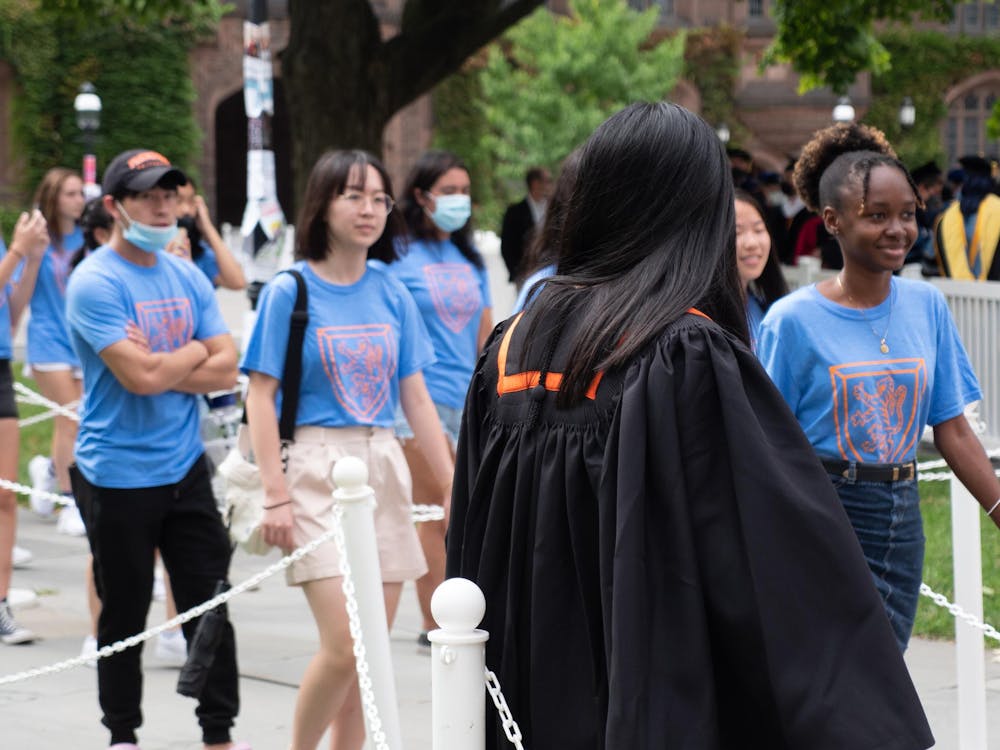In February, Professor Lawrence Rosen decided to cancel his course on hate speech after receiving criticism for his use of the N-word in a lecture. Defenders of Rosen claimed that he wasn’t using the racial slur intentionally, only using it to prove a point, while his critics said they believe the word was avoidable in the teaching of his lesson. Although many people are aware of this incident, Princeton is not the only community in which the N-word has been said in a controversial context.
Last week, a video was released of the Virginia Tech women’s lacrosse team singing the N-word in Lil Dicky’s new song “Freaky Friday.” In the song, Lil’ Dicky switches bodies with Chris Brown in typical Freaky Friday fashion and realizes he is entitled to say the N-word now, only because he is technically in a black man’s body. The song itself suggests that you can only use the N-word if you are black, which makes the girls’ actions highly ironic. The video was recorded on Snapchat by one of the players on the team and was later posted to YouTube and released on Twitter. The Twitter user received messages from the player who took the video, asking that they take it down, pleading that she and her teammates were innocently “singing a song” and she didn’t even realize that the N-word was in the video at the time. She also adds that “I never have any intention of my snapchats going public,” the standard code phrase for: “I’m only sorry I was caught.”
Being a member of the lacrosse team here at Princeton, this incident not only questions the reputation and character of the Virginia Tech women’s team, but also inevitably questions mine as well. While I agree to some extent with their coach who said he considers them “good kids who made a bad decision,” the root of white privilege is still made evident in this player’s remorseful comments. It is a luxury to hear the N-word without the slur eliciting enough of a reaction to recognize that it is being used. It is a luxury to chant the N-word in a song, treating it as any other lyric. White people have these luxuries because the N-word does not carry the same weight for us as it does for black people. For whites, it is a taboo; for blacks, it contains a long, winding history of oppression and injustice. While the player claims she had no intention of the Snapchat going public, the issue isn’t just about hurting people who heard the video. It goes beyond that: it’s about holding ourselves accountable, especially in the private spaces that we occupy. The girls shouldn’t have had to apologize retroactively. They should’ve proactively realized it was wrong and not recorded the video in the first place.
Over intersession, each member of my team was required to read and complete exercises in a manual about the responsibilities of being an athlete. When we returned from break, we proceeded to have several meetings about our team standards and what actions we consider to be appropriate on and off the field. Some of the other standards we strive to uphold are not to curse, to show gratitude to our staff, and most importantly, to treat people with respect around campus. We may slip up from time to time, perhaps throwing out a curse word during a frustrating practice, but in almost every instance where someone makes a mistake, another player is there to remind them of our values. One of our biggest priorities is being responsible about what we post on social media, and I’ve been on both sides of that. I have had a captain text me about taking down an Instagram in which a can of beer was visible. I have once alerted one of my teammates about a questionable video of hers that was reposted by a popular account. When teammates have the courage to call each other out for inappropriate behaviors, they foster a better culture for each other and those around them.
Some people claim that the Virginia Tech incident is due to the lack of diversity in collegiate lacrosse. In the 2016–2017 year, the NCAA Demographics Database indicates that about 85 percent of both men and women collegiate lacrosse players were white and only about 3 percent were black. The numbers are clear and I do agree that the lacrosse world should take measures to create a more racially balanced future. But even still, these critics place the blame on the sport rather than the players; those girls definitely knew better.
The sport doesn’t shape who a player chooses to be and how to act. The coaches and teammates do that. Every collegiate lacrosse team cannot be implicated as racist and un-diverse just because of Virginia Tech’s bad decisions. In writing this piece, I have no intention of making the Virginia Tech women’s lacrosse team seem malicious or of boasting of the righteousness of my team. Rather, as we know all too well, this discriminatory social media action is a familiar occurrence and will continue to happen if we don’t have important and sometimes uncomfortable discussions within our organizations on campus. My team is learning from this incident, just as Virginia Tech will and other groups should, trying our best every day to be even more aware and considerate as a unit and as individuals.
Winnie Brandfield-Harvey is a sophomore from Houston, Texas. She can be reached at wab2@princeton.edu.







